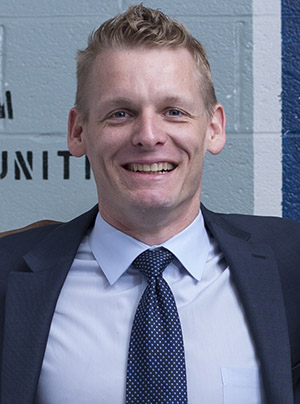A well-established firm that supports the world’s leading philanthropists and impact investors is boosting its presence in North Texas.
Arabella Advisors was created to make philanthropy more efficient and effective for everyone from foundations and corporations to families and individuals. That involves a variety of services: designing and optimizing giving programs, creating custom philanthropic platforms, collaborating with partners, and implementing a range of nonprofits and projects.
The announcement comes in coordination with Arabella naming its first-ever managing director, Jeremy Gregg.

Jeremy Gregg
Based in Dallas, Gregg was brought on to assist Arabella’s client list of Texas-based social impact innovators—overall significantly increasing the firm’s services and support across the state.
“Arabella Advisors has worked with a handful of Texas philanthropists for years. We see huge potential in North Texas and across the state,” Gregg told Dallas Innovates. “A philanthropic culture that emphasizes nonprofit collaboration but doesn’t promote much formal collaboration among grantmakers and other givers. Recently, there has been some progress on this front, but there is an enormous opportunity to unite the philanthropic community, mobilize game-changing amounts of funding, and distribute it through more efficient funding and support models.”
Plus, as Gregg’s friend Salah Boukadoum often champions about Dallas: “This is the Impact City.” (Boukadoum even sat Gregg down a decade ago and challenged him to dream bigger about social impact.) Gregg and his team at Arabella are strong advocates for this mindset that the city has the potential to be a global center for sustainable organizations solving the world’s biggest problems.
“We believe that Dallas has the right combination of factors to become one of the country’s most innovative philanthropic centers as well as one of its most active impact investment hubs,” Gregg says. “I think that Texas is poised to be the impact investing epicenter of the South.”
There are three main reasons why Gregg believes Arabella Advisors can turn an idea into action. He explains:
We literally wrote the book on this, “Essentials of Impact Investing.”
We developed An Economy for All, a site dedicated to “How Philanthropy Can Unlock Capital for Women Entrepreneurs and Entrepreneurs of Color through Inclusive Investing.”
We created a private impact investing club, Good Food Ventures, focused on transforming our food and agriculture systems.
He is also already in conversation with groups in Dallas, as well as Houston and Austin, about launching their own clubs to expand impact investing.
So, why North Texas?
A few years ago, Arabella began to notice a few major things about Texas that would lead them to this point.
For starters, Gregg points to the abundance of institutional philanthropy—there are 1,000 private foundations in Dallas alone. But, he says, there aren’t as many options for the use of high-impact strategies, such as fiscal sponsorship, like there is in other parts of the country. Gregg says this is a tool that often provides grantmakers more flexibility.
Next is one of Arabella’s fastest-growing areas: A sophisticated financial environment in the business sector, but with little cross-over into the social impact space. Using various types of capital is highly important—especially in times like these, Gregg says.
“We offer sophisticated tools and services that enable donors and investors to use different types of capital to pursue philanthropic goals, from traditional grants to debt and equity investments to combined approaches that leverage all of the above,” he says. “More and more philanthropists are approaching us about how to give financial support directly to businesses and people in need, and we are helping them to develop the most effective way to do so.”
Gregg says he and his team recognize Texas’ philanthropic culture that encourages nonprofit collaboration. But, that “doesn’t promote much formal collaboration among grantmakers and other givers.”
While there is progress on this front—he points to the newly founded North Texas Cares—Arabella recognizes an opportunity to unite the philanthropic community, while at the same time mobilizing funding and distributing it through more efficient models.
Lastly, Gregg touts his own personal passion for social impact. A fourth-generation Dallasite, he recognizes the opportunity for deal flow in impact investing. He credits the region’s cultural emphasis on capitalism, combined with its exceptionally high amount of per-capita philanthropy.
One thing to note on impact investing is that for every $1 that a private foundation donates, it typically invests another $19.
“Over the long term, my personal goal is to strengthen the impact ecosystem of Texas,” he says. “Our national research indicates that the world’s foremost philanthropists are exploring ways to do far more than traditional charity can accomplish, and there is a hunger for big, bold thinking and for pioneering new models that can shape the future of civil society—in Texas and beyond.”
Gregg hopes to shift Texas philanthropy to a more focused emphasis on collaboration for the greater good. In doing so, he thinks there’s the potential to move hundreds of millions of dollars in the direction of shared impact, and even more if there’s an integration of investment dollars alongside more traditional approaches to philanthropy.
“I am particularly concerned about the hundreds of rural communities in Texas that sit in between the major urban centers,” Gregg says. “Very few of these small towns have a strong philanthropic support system, and many have been derailed by the pandemic in a way that philanthropy alone cannot solve; we need to amass an unprecedented commitment to the entire state and we need to use every tool at our disposal to sustain these communities. If we can do so, I believe this lays the foundation for Texas to be stronger than ever: by strengthening the impact ecosystem across the Lone Star State.”
Arabella’s presence in the state
Gregg is Arabella Advisors’ first employee in the state, but he’ll be supported by a team of around 250 across the country. Though Arabella isn’t a high-volume practice, he expects to build a local team of three to five people—all experts in philanthropy and impact investing—in the near future.
“We focus on larger, high-impact projects for ultra-high net worth philanthropists, private foundations, and corporations,” he says. “As such, I only anticipate working on five to ten projects this year; local staff will grow according to the volume and complexity of the projects in which we are involved—and always with a view to providing the types of support our clients need to accomplish their philanthropic goals.”
Arabella’s specialty is “turning big ideas into big builds,” according to CEO Sampriti Ganguli. That means the aim is more on scaling the reach of Texas’ highest-capacity philanthropists and impact investors rather than the firm’s own growth.
“I look forward to living up to the stereotype that ‘Everything is bigger in Texas’—especially our impact,” Gregg says. “I think that our state’s philanthropists have a unique opportunity to transform the future of our region, and even our country, in a way that promotes inclusive prosperity for all of our citizens.”
![]()
Get on the list.
Dallas Innovates, every day.
Sign up to keep your eye on what’s new and next in Dallas-Fort Worth, every day.


































































